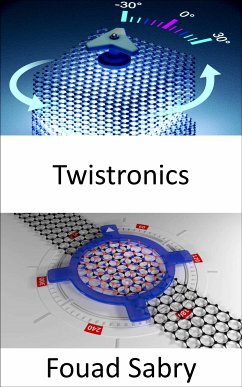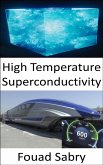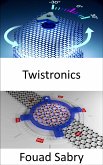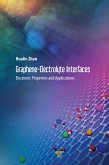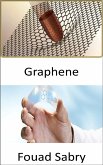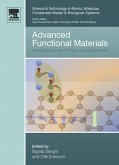What Is Twistronics
The field of research known as "twistronics" examines how changing the angle between layers of two-dimensional materials might affect the electrical characteristics of the materials. It has been shown that the angle between the layers of some materials, such as bilayer graphene, may profoundly affect the electrical behavior of the material, causing it to behave in a manner that is anywhere from non-conductive to superconductive. In their theoretical description of graphene superlattices, the research group led by Efthimios Kaxiras at Harvard University was the first to use this word.
How You Will Benefit
(I) Insights, and validations about the following topics:
Chapter 1: Twistronics
Chapter 2: Superconductivity
Chapter 3: Unconventional superconductor
Chapter 4: High-temperature superconductivity
Chapter 5: Room-temperature superconductor
Chapter 6: Graphene
Chapter 7: Superlattice
Chapter 8: Hofstadter's butterfly
Chapter 9: Tungsten ditelluride
Chapter 10: Proximity effect (superconductivity)
Chapter 11: Pomeranchuk cooling
Chapter 12: Superstripes
Chapter 13: Bilayer graphene
Chapter 14: Allan H. MacDonald
Chapter 15: Alexander V. Balatsky
Chapter 16: Single-layer materials
Chapter 17: Eva Andrei
Chapter 18: Electronic properties of graphene
Chapter 19: Pablo Jarillo-Herrero
Chapter 20: Antonio H. Castro Neto
Chapter 21: Rafi Bistritzer
(II) Answering the public top questions about twistronics.
(III) Real world examples for the usage of twistronics in many fields.
(IV) 17 appendices to explain, briefly, 266 emerging technologies in each industry to have 360-degree full understanding of twistronics' technologies.
Who This Book Is For
Professionals, undergraduate and graduate students, enthusiasts, hobbyists, and those who want to go beyond basic knowledge or information for any kind of twistronics.
The field of research known as "twistronics" examines how changing the angle between layers of two-dimensional materials might affect the electrical characteristics of the materials. It has been shown that the angle between the layers of some materials, such as bilayer graphene, may profoundly affect the electrical behavior of the material, causing it to behave in a manner that is anywhere from non-conductive to superconductive. In their theoretical description of graphene superlattices, the research group led by Efthimios Kaxiras at Harvard University was the first to use this word.
How You Will Benefit
(I) Insights, and validations about the following topics:
Chapter 1: Twistronics
Chapter 2: Superconductivity
Chapter 3: Unconventional superconductor
Chapter 4: High-temperature superconductivity
Chapter 5: Room-temperature superconductor
Chapter 6: Graphene
Chapter 7: Superlattice
Chapter 8: Hofstadter's butterfly
Chapter 9: Tungsten ditelluride
Chapter 10: Proximity effect (superconductivity)
Chapter 11: Pomeranchuk cooling
Chapter 12: Superstripes
Chapter 13: Bilayer graphene
Chapter 14: Allan H. MacDonald
Chapter 15: Alexander V. Balatsky
Chapter 16: Single-layer materials
Chapter 17: Eva Andrei
Chapter 18: Electronic properties of graphene
Chapter 19: Pablo Jarillo-Herrero
Chapter 20: Antonio H. Castro Neto
Chapter 21: Rafi Bistritzer
(II) Answering the public top questions about twistronics.
(III) Real world examples for the usage of twistronics in many fields.
(IV) 17 appendices to explain, briefly, 266 emerging technologies in each industry to have 360-degree full understanding of twistronics' technologies.
Who This Book Is For
Professionals, undergraduate and graduate students, enthusiasts, hobbyists, and those who want to go beyond basic knowledge or information for any kind of twistronics.
Dieser Download kann aus rechtlichen Gründen nur mit Rechnungsadresse in A, B, BG, CY, CZ, D, DK, EW, E, FIN, F, GR, H, IRL, I, LT, L, LR, M, NL, PL, P, R, S, SLO, SK ausgeliefert werden.

